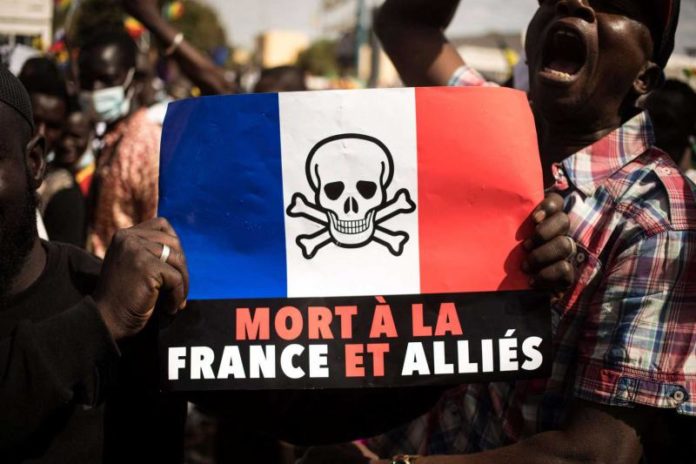
![]()
London – We have seen how the work of China in Africa is controversial and in fact is criticized by various observers as a new form of colonial policy and exploitation.
According to various surveys and research, however, the Chinese presence would seem for now to find some favor in public opinion in various sub-Saharan countries.
On other hand, the latter seem to have matured a certain repulsion towards the “old” European colonial powers, in particular towards European military operations and towards France.
This paved the way for other powers, such as China (precisely) and Russia, increasingly active in the Sahel, but not only.
In terms of cooperation and development, however, the European Union is highly appreciated in Africa and still plays a leading role.
The last French soldier from Operation Barkhane left Mali last August. A commitment that lasted 9 years and which ended in worst possible way for Paris.
Beyond the formal words, the end of the Barkhane operation in Mali represents a “smackdown” for France.
It was not wanted, even if organized down to the smallest detail so as not to create negative repercussions, but imposed by the Malian coup regime.
Relations between Bamako and Paris began to deteriorate after the two coups that brought the military to the government of the country, immediately stigmatized by Macron.
 Then the diplomatic crisis escalated with the expulsion of the French ambassador from the capital of Mali, only to crack definitively with the accusations brought by France of the presence in Mali of Russian mercenaries from the Wagner Company.
Then the diplomatic crisis escalated with the expulsion of the French ambassador from the capital of Mali, only to crack definitively with the accusations brought by France of the presence in Mali of Russian mercenaries from the Wagner Company.
He always rejected accusations in Bamako, but documented both by the UN and by France itself when he disclosed images of mercenaries burying civilian bodies to blame them on the French.
A piece of the French empire, therefore, has fallen into the hands of Moscow. Also macron/Congo
We have seen how the work of China in Africa is controversial and in fact is criticized by various observers as a new form of colonial policy and exploitation. According to various surveys and research, however, the Chinese presence would seem for now to find some favor in public opinion in various sub-Saharan countries.
On the other hand, the latter seem to have matured a certain repulsion towards the “old” European colonial powers, in particular towards European military operations and towards France.
This paved the way for other powers, such as China (precisely) and Russia, increasingly active in the Sahel, but not only. In terms of cooperation and development, however, the European Union is highly appreciated in Africa and still plays a leading role.
The last French soldier from Operation Barkhane left Mali last August.
A commitment that lasted 9 years and which ended in the worst possible way for Paris. Beyond the formal words, the end of the Barkhane operation in Mali represents a “smackdown” for France. It was not wanted, even if organized down to the smallest detail so as not to create negative repercussions, but imposed by the Malian coup regime.
Relations between Bamako and Paris began to deteriorate after the two coups that brought the military to the government of the country, immediately stigmatized by Macron.
Then the diplomatic crisis escalated with the expulsion of the French ambassador from the capital of Mali, only to crack definitively with the accusations brought by France of the presence in Mali of Russian mercenaries from the Wagner Company.
He always rejected accusations in Bamako, but documented both by the UN and by France itself when he disclosed images of mercenaries burying civilian bodies to blame them on the French.
A piece of the French empire, therefore, has fallen into the hands of Moscow.
To understand the current French situation in Africa it is sufficient to watch the press conference of 4 March 2023 with the French President Macron and the President of Congo Tshisekedi.
Riccardo Cacelli


